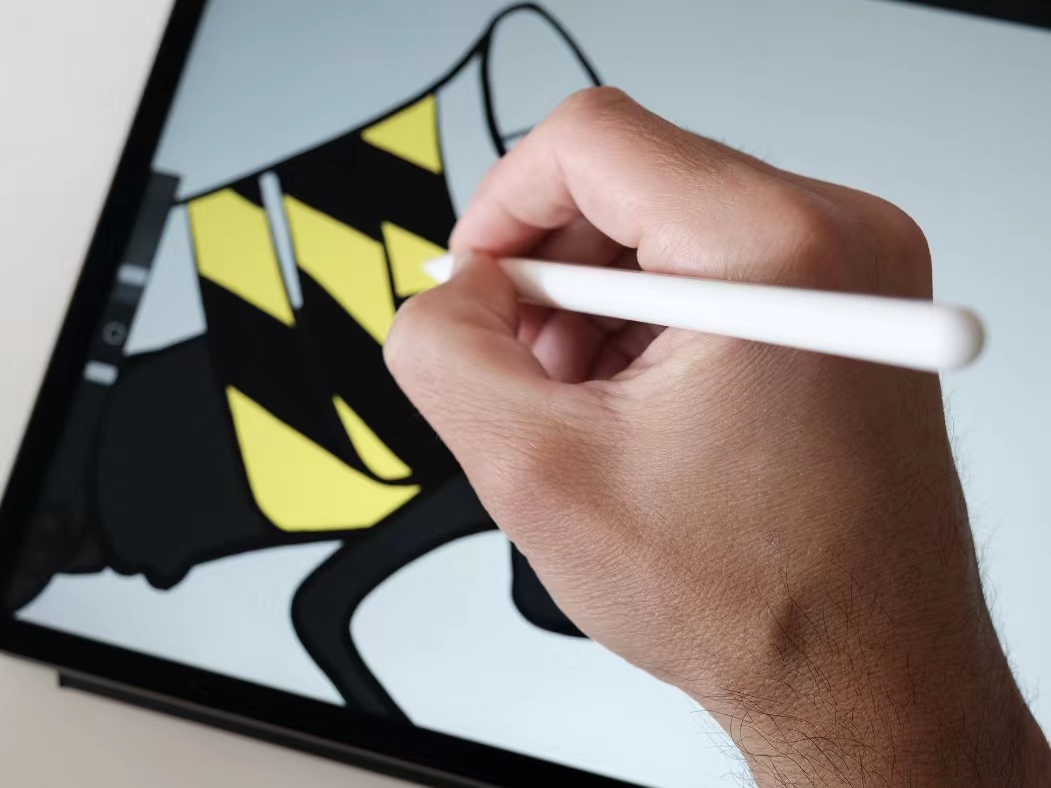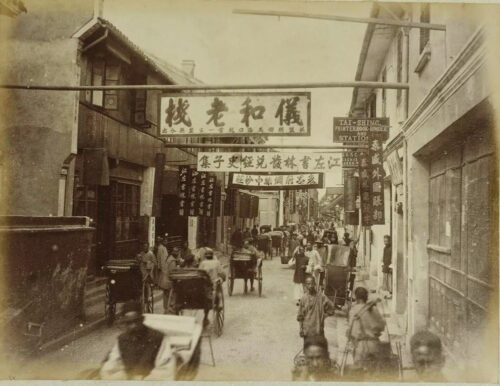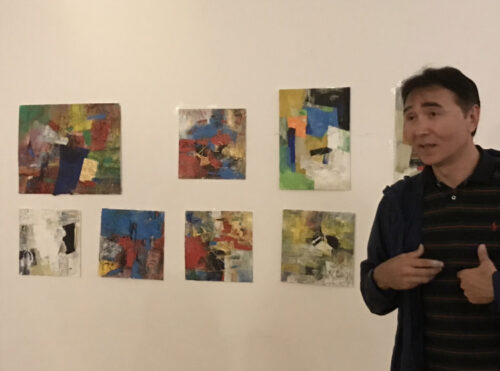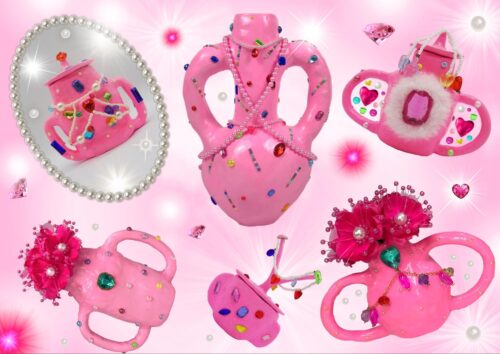Documenting Shanghai’s lockdown, one NFT at a time
Taking inspiration from their experience with Shanghai’s lockdown, a group of creatives have formed “Stay Negative,” a community-driven collective that just released its first NFT art collection.
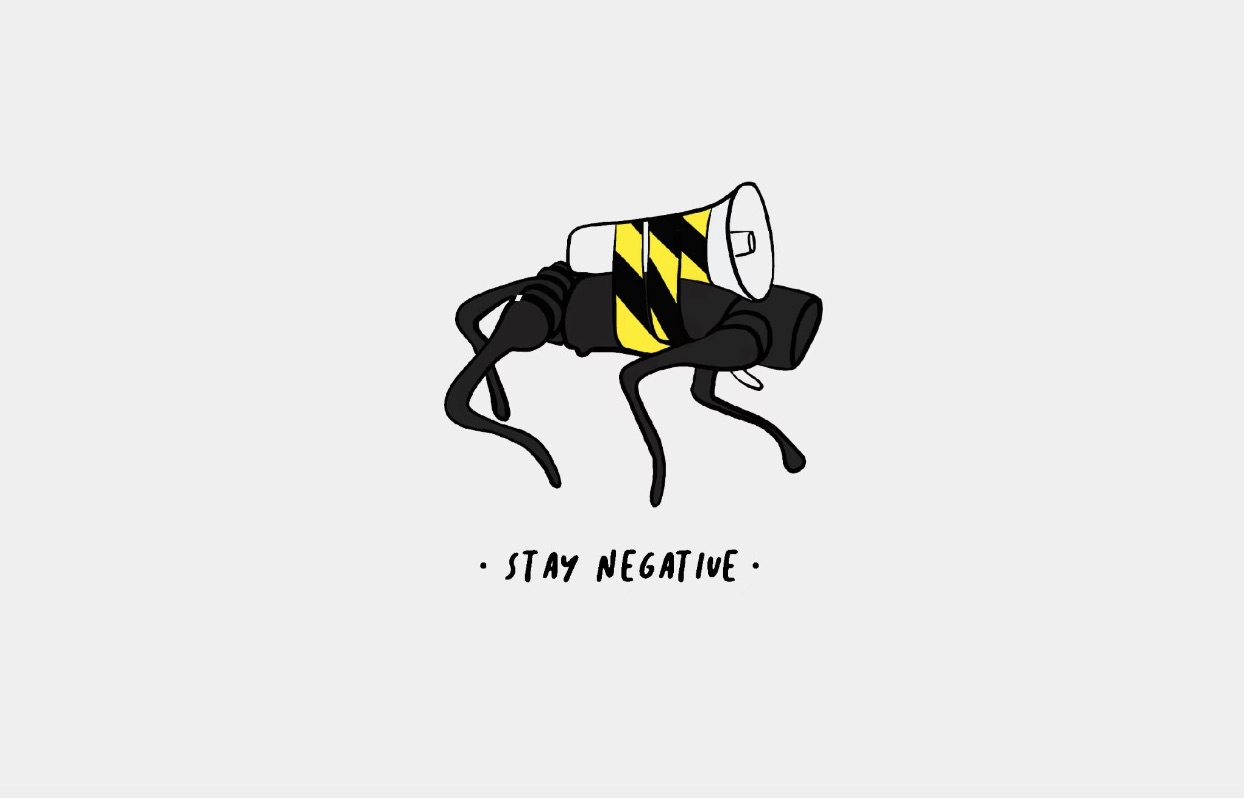
It’s said that hardship breeds artistic expression, and that’s exactly what we have seen during the recent lockdown in Shanghai. As its 26 million residents remain isolated at home under sweeping restrictions, creativity has revealed itself in surprising ways.
In a remote collaboration, a group of local musicians played “Do You Hear the People Sing,” a protest anthem from the musical Les Miserables, on violins and cellos. Memes and videos have become a way for residents to voice their anger at the city’s quarantine measures. Even the spring onion, an ingredient in Chinese cuisine and a popular vegetable for Shanghai residents to grow indoors when cooped up at their homes, has emerged as an unlikely source of inspiration for many amateur photographers.
A group of expats is trying to get into the act. Stay Negative is a collective that is selling a set of NFT artworks on the marketplace OpenSeas with prices starting at 0.01 Ethereum, roughly equivalent to $20 at the current rate. The series is made up of 219 digital illustrations — inspired by lockdown images like the red-dressed dancer and green fences — each one containing an exclusive serial code.
The creators have promised that half of the proceeds from the project will go to a local charity aiding the homeless in the city. “Ultimately, it comes down to the idea that we want to do something positive,” said co-founder Alessandro Pavanello. “But at the same time, we want to give back to people, and that’s one of the fundamental drivers for us.”
Stay Negative says they have 12 collectors at the moment and have sold about 50 pieces. No two pictures are the same. “That’s what we really wanted for the collectors, to perceive this as, ‘I have this unique value and this is something that I’m going to forever keep and cherish as this historic Polaroid,’” said operations and marketing manager Vittorio Sileo.
We recently caught up with three members of the Stay Negative team — Pavanello, co-founder Peter (who wishes to use a pseudonym for privacy purposes), and Sileo — to learn more about the collection and their life in locked-down Shanghai.
The China Project: How did Stay Negative get started?
Peter: When the lockdown started in Shanghai, the message everybody was repeating was to stay safe, stay positive, or at least try to be positive. But then, between me and the other co-founder who is not here today, we joked about staying negative. It’s a very Italian way to cope with unpleasant things — we use negative words ironically to feel positive. And we wanted to spread smiles to other people. That’s how we started.
The China Project: Ali, could you tell us a bit about the days you spent at an isolation facility after you tested positive for COVID in early April?
Ali: It felt a bit weird to just be taken away from your home and [to a place where] hundreds of people shared a very close space with each other under difficult hygiene conditions. But I’ve always tried to be a positive guy, even before Stay Negative.
Ultimately, it’s an experience that just happened. It’s part of being in China right now.
This project has been a good push for my own mental wellbeing. It’s been a great thing to focus on and to put my energies into. Overall the experience itself was traumatic, but the aftermath of it, it’s OK, you get over it.
The China Project: Why did you pivot to NFTs after selling physical objects?
Peter: We initiated this Stay Negative as sort of a T-shirt program. We first created a series of graphics and posted them to social media. And then one of those graphics was applied on T-shirts. We sold those T-shirts through a mini program platform, and all the revenue was actually donated to this charity. After about 10 days of operation, we managed to sell almost 200 T-shirts. The response was so positive that we had to turn down a lot of requests, some of which came from overseas.
And that’s where the NFT idea came into play because we realized that we needed to create something that was able to be purchased from outside of China.
The China Project: Before this project, did you guys have any experience creating NFTs and selling NFTs? Is this new to all of you?
Vito: All the creative minds of the Stay Negative collective didn’t really have any tangible experience with NFTs prior to this. We were determined to do this because we believe that this has the potential to actually go global, and the potential to gather people from different backgrounds — socially and economically — in the same community. That’s what we really want to do right now.
The China Project: Peter, as the main creator of this collection, do you have a personal favorite piece that you’ve created for this project? What’s your creation process look like? Where do you get your inspirations?
Peter: My favorite pieces are those of robot dogs with megaphones. I think those are literally the picture of a historical moment. The design process behind each piece is actually very simple in the sense that I think, especially now, our brain is bombed with information. My objective is to really filter out all the unnecessary noise by anchoring on one simple image. So that’s why all the illustrations in this collection are meant to be simple. It’s a white, light gray background, a very simple illustration, and a word. The idea is to really make you feel comfortable in looking at something that is simple, give you a smile.
The China Project: Stay Negative was created in response to the lockdown. Will it still be around after the lockdown ends?
Vito: For sure. The idea for us is almost to put a roadmap out. That is a very NFT term, but what it means is that we also want to explain to the people that they’re going to get close to the collective, and in general, the community that can engage all sorts of people.
We also think that the most exciting part for the community would probably be after the lockdown because we are already imagining what kind of online or offline events we can put together. Maybe some panels to discuss topics that we found interesting during this period.
The China Project: The recent outbreak and the following lockdown has made many foreigners living in Shanghai disappointed at how the city has handled the situation, and some of them said that they want to leave Shanghai after this. How do you guys feel about what happened in the past few weeks? What are your future plans?
Vito: If we keep our head focused on this specific 40 days of lockdown, which is probably going to extend to 50 or even 60 days, it sucks. It’s not something that I will ever wish to experience.
At the same time, what I always think is that until March 27, I was out with my friends and there’s been two years that I basically was able to do whatever I wanted while other countries were struggling.
For me, I haven’t reached a breaking point where I feel I should leave China. After all, I think Shanghai is still one of the best cities in the entire world to live for everyone of any age or social interaction. And I do believe that if an expat exodus actually happens, it’s going to give a lot of other people more opportunities to do business, do good, and really enjoy Shanghai’s competitive environment.
Peter: For someone who has lived like China for 12 years, I see this as just one of those moments where there is a change happening. And as it happened in the past, change is not always an easy thing to digest. I remember in the past there were a lot of things that happened and they changed the overall dynamic of the city.
I’ll just mention two things that are very silly compared to this, but just to give you an idea.
When I arrived here, there were chow mein vendors everywhere on the street. There were vendors selling pirated DVDs and counterfeit stuff everywhere. And then the government decided to close all of them. That impacted my life and the life of many in a very tangible way.
And about five years ago, the popular area where everybody used to spend their time was Yongkang Road. It was literally the epicenter where everything was happening. Bars, restaurants, clubs, people everywhere were converging on this very tiny road at the heart of the French Concession. And then all of a sudden, the government said, “You know what guys? It’s over.”
I think the strength of the Chinese, but mainly Shanghainese, is the ability to reinvent themselves no matter what. I think the resiliency that you see in this city, the resiliency that you see in the people of this city, the energy, the level of accepting but not giving up, it’s embedded in their DNAs. I agree with what Vito just said. What happened in the past 40 days was absurd — the lack of communication, the miscalculation, the extreme measures without necessarily a clear explanation — but on the other hand, we have been safe for two years, and the lockdown is just part of the strategy that was there from the outset. It was hardly a surprise.
From where I sit, I don’t plan to leave. I feel almost Shanghainese right now. The energy of this city can drive me for another 12 years.
But then, of course, we are foreigners, so as in every relationship, we need to be in tune. If we want to be in the relationship, we need to understand if the partner [also] wants to stay in the relationship with us. So yeah, we keep staying and we keep fighting together.
Follow Stay Negative on Instagram @staynegative.io
